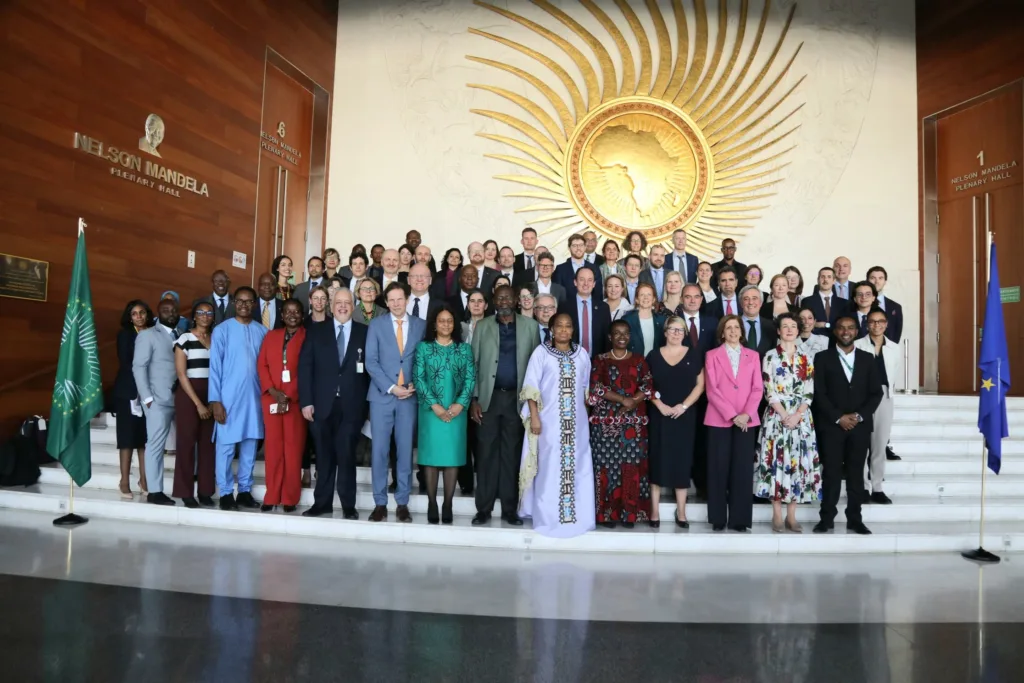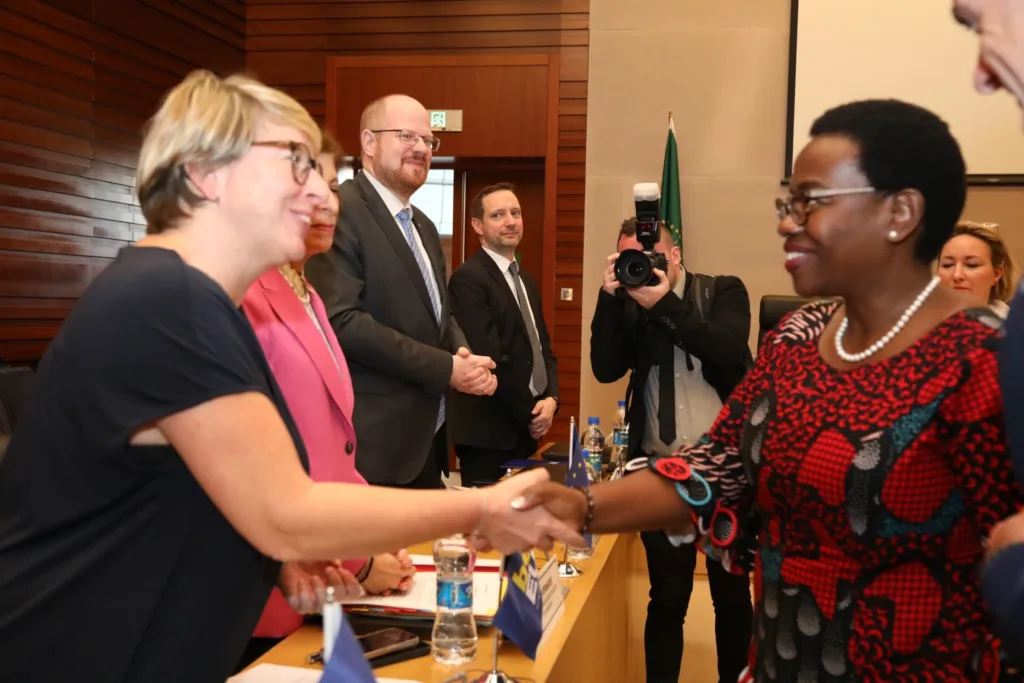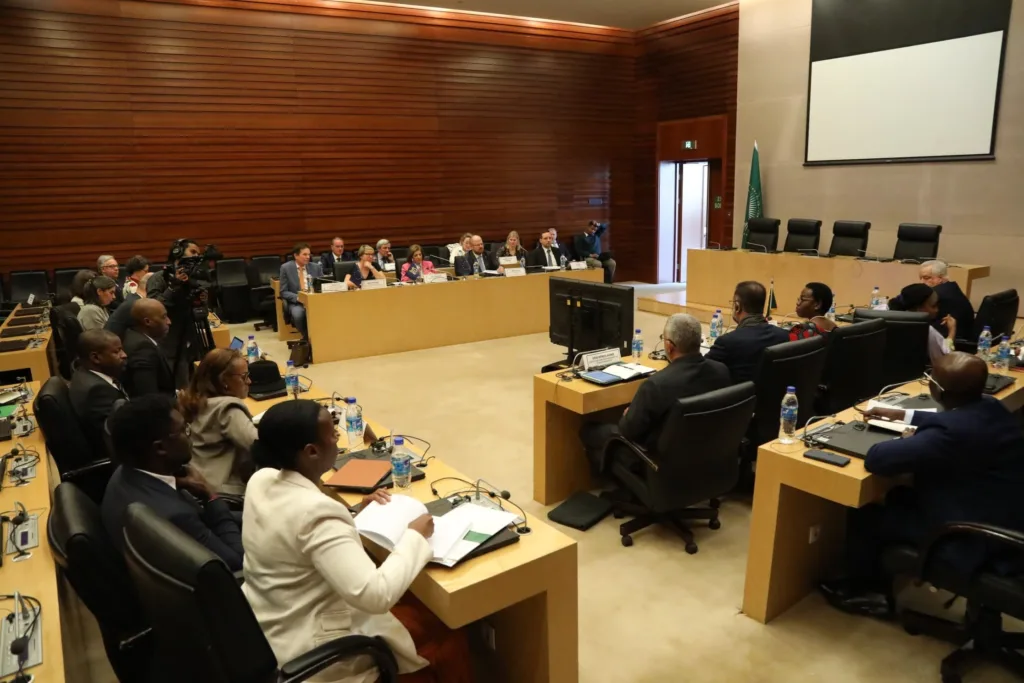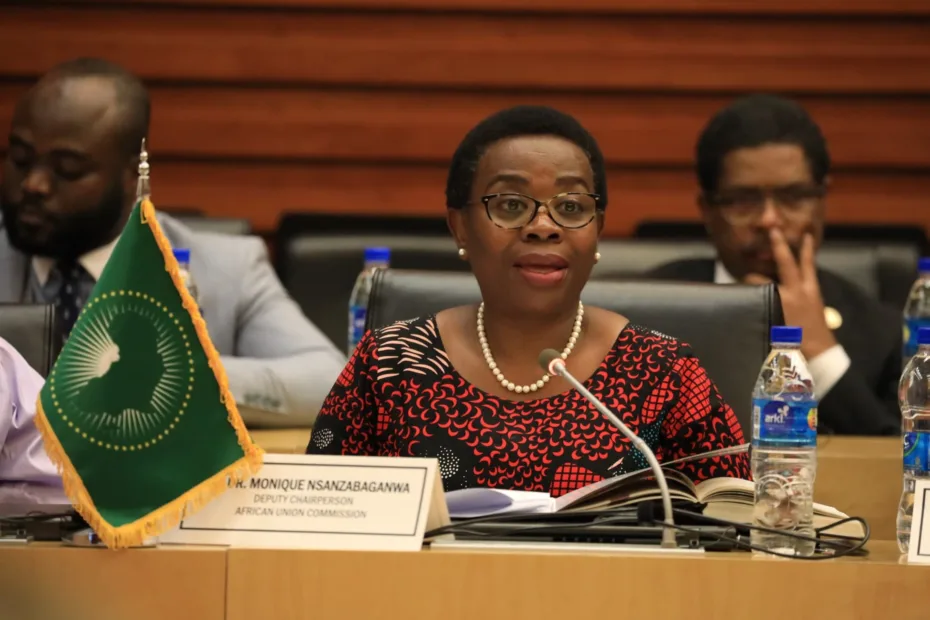The African Union (AU) and the European Union (EU) convened on Monday, February 5 for a pivotal dialogue focused on enhancing health partnership to tackle shared challenges and foster mutual collaboration.
This dialogue is part of the Belgian EU Presidency’s aim to accelerate equal access to health and strengthen the Africa-EU partnership on Global Health.
At the same time, the partnership is going to be a precursor to the Belgian EU Presidency’s high-level event on health. The event will take place in Brussels with the African Union on March 20, 2024.
The dialogue comes against the backdrop of a rapidly evolving global health landscape. However, this dialogue marks a significant step towards fortifying health systems and promoting equitable healthcare access across Africa and Europe.
The AU-EU Health Dialogue brought together a diverse array of stakeholders, including policymakers, healthcare professionals, researchers, and civil society representatives.
Together, they engaged in constructive discussions aimed at identifying key areas for cooperation. At the same time, charting a course towards sustainable health development.
Also Read: Biden Proclamation Overhauls U.S. Trade Relations With African Nations Under AGOA

AU-EU Dialogue Organisers
The high level dialogues is jointly organized by The African Union Commission. Furthermore, it is organized thorough its Department of Health, Humanitarian Affairs and Social Development, and the European Union
Central to the dialogue was the recognition of the interconnectedness of health systems in Africa and Europe.
Currently, both regions grapple with a multitude of health challenges.They range from infectious diseases to the rising burden of non-communicable diseases.
Moreover, the ongoing COVID-19 pandemic has underscored the imperative of international solidarity and collaboration in addressing global health emergencies.
At the 6th EU-AU Summit held in Brussels in 2022, both parties reaffirmed their commitment to the right to health. Participants in the dialogue underscored the importance of strengthening healthcare infrastructure as a cornerstone of effective health systems.

Objectives of the Dialogue
Likewise, they agreed on investment in robust healthcare infrastructure, including hospitals, clinics, and medical supply chains. This is essential for ensuring that communities have access to quality healthcare services, particularly in underserved areas.
At the same time, capacity building emerged as another key theme of the dialogue. Participants highlighted the need to invest in training and empowering healthcare workers.
More over, the agreed on equipping healthcare professionals with the skills and resources they need. This is to be done in both Africa and Europe so that they can enhance their ability to respond to health crises and provide comprehensive care to their populations.
Research and innovation were also focal points of discussion, with participants emphasizing the importance of fostering scientific collaboration and leveraging cutting-edge technologies to address emerging health threats. By promoting research partnerships and investing in innovation, Africa and Europe can drive forward advancements in healthcare delivery and disease prevention.
Additionally, the dialogue addressed the critical issue of vaccine equity, particularly in light of the global COVID-19 vaccination efforts. Participants reaffirmed their commitment to ensuring equitable access to vaccines for all, regardless of geography or socioeconomic status.
This includes supporting initiatives aimed at expanding vaccine production capacity in Africa. More so, facilitating the equitable distribution of vaccines to underserved communities.
In addition, Participants discussed the potential of digital solutions to bridge healthcare gaps, especially in remote and rural areas. Digital health technology became a key focus for it’s transformative tool in improving health care access and delivery.
As the dialogue concluded, participants reiterated their commitment to strengthening the AU-EU health partnership. They also outlined concrete steps for future collaboration. This includes enhancing policy coherence, mobilizing resources, and fostering innovation to address shared health challenges.


